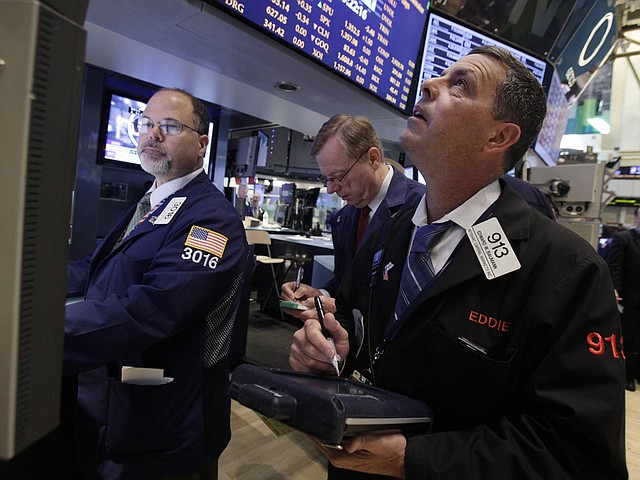U.S. stocks fall on manufacturing slowdown
Monday, July 2, 2012
CHRISTINA REXRODE, AP Business Writer
NEW YORK - Investors rejoiced over Europe last week. On Monday, they got back to worrying about the United States.
Stocks sank after a business group reported that American manufacturing shrank in June for the first time in almost three years. The Dow Jones industrial average dropped 48 points to 12,832 at mid-afternoon.
Chemical company DuPont fell the most of the 30 companies in the Dow. It was down $1.48, or 2.9 percent, to $49.09. Caterpillar, General Electric, Alcoa, Exxon Mobil, Boeing and other companies closely tied to manufacturing were also down.
It was the first day of trading of the second half of the year. U.S. stocks in the Standard & Poor's 500 index finished the first half up more than 8 percent.
Stocks wavered between small gains and losses before Monday's manufacturing report. The government reported a sliver of good news: U.S. construction spending rose in May by 0.9 percent, the most in five months.
But that was not enough to outweigh the more recent manufacturing report. The S&P 500 was down three points to 1,359. The Nasdaq composite dropped a fraction of a point to 2,934.
"There's just a lot of bad news," said Leo Grohowski, chief investment officer of Bank of New York Mellon's wealth management division. The market, he said, "is going to continue to move from hope to despair."
On Friday, world stocks soared after European leaders announced a plan to make bailouts easier for troubled banks and relieved governments crippled by debt. The Dow gained 277 points, and the S&P had its best day of the year.
On Monday, major indexes in Europe added to their gains from despite the news about U.S. manufacturing. Stocks were up 1.2 percent in Germany, 1.4 percent in France and 0.3 percent in Spain.
Previous steps to ease the debt crisis in Europe have been met by market gains that quickly disappeared. The gains Monday were a sign that investors are more convinced that this plan will work.
But the day also brought reminders of how badly Europe needs help: Unemployment in the 17 countries that use the euro is at the highest level since the euro was launched in 1999.
In France, auditors warned that the country still has a big budget hole to plug. In Cyprus, leaders prepared for talks on its own bailout. And in Germany, the highest court announced it would hear arguments from people who want to block the rescue.
Grohowski said that the best he was hoping for, both for the U.S. and for Europe, was a "two steps forward, one step back" economic recovery.
U.S. car companies report monthly sales Tuesday, retailers like Target and Macy's report monthly sales on Thursday, and a closely watched report on U.S. jobs comes out Friday.
For the most part, investors seem to think that uncertainty in the U.S. economy will continue at least through the presidential elections in November, and maybe for the rest of the year. The government hasn't addressed looming headaches like the tax increases and spending cuts scheduled to take effect in January.
In corporate news:
- Bank of America fell 1.8 percent. It and other big banks are supposed to submit "living wills" Monday outlining for the government how they would unwind if they were close to failing.
- Best Buy jumped 6 percent after reports that its founder was close to making an offer to buy the company and take it private. Best Buy, an electronics store, has struggled to keep up with online-only competitors like Amazon.
- Groupon fell more than 8 percent after analysts at Susquehanna cut their price target for the company, noting higher marketing expenses.
